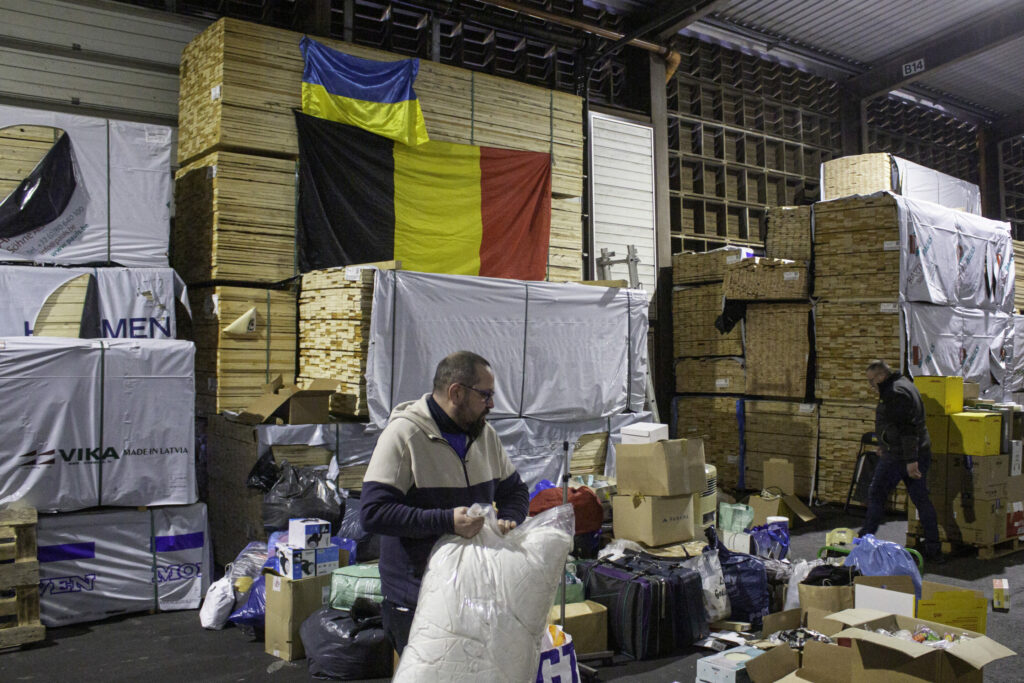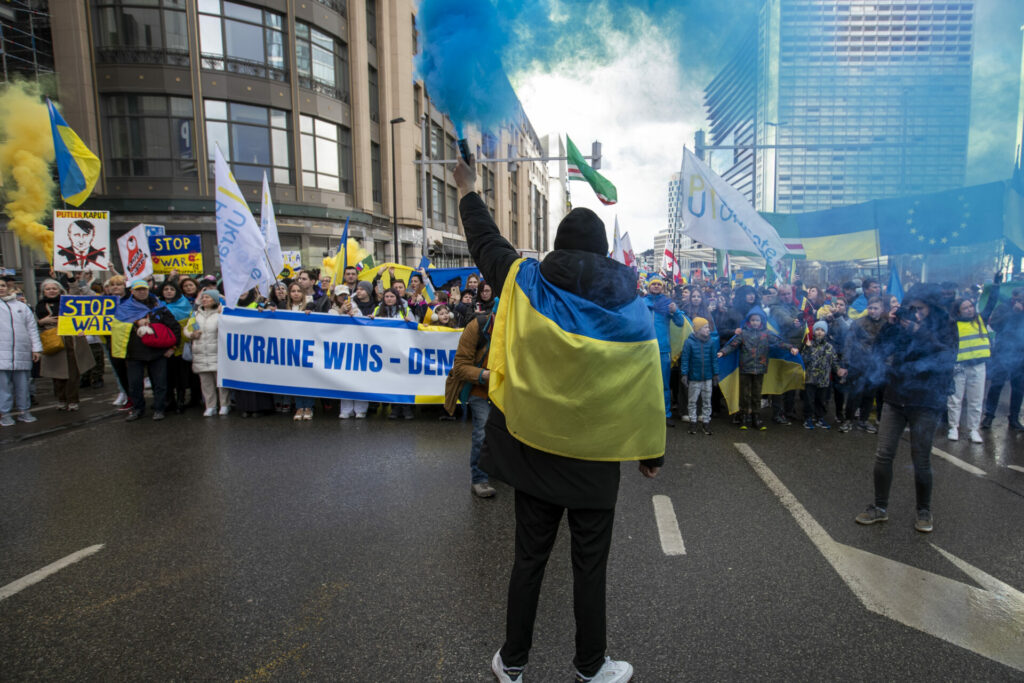Almost two years since Russia's invasion of Ukraine, an opinion poll of Europeans found that war fatigue is diminishing Belgian support for the Ukrainian defence.
When Russia launched its offensive on 24 February 2022, support for Ukraine and its people was strong across the EU, including in Belgium. Hundreds of Belgian households sheltered refugees and national authorities were quick to set up temporary housing. Belgium has in the past two years repeatedly provided support packages; the latest, worth €611 million, was announced in January this year.
Several opinion polls have highlighted strong citizen support for such measures. However, a poll by Eupinions – supported by the King Baudouin Foundation – showed that support in Belgium is waning for the various forms of assistance provided to Ukraine. The results present the stakes for political leaders face as they angle for voters ahead of the June elections.
Party divisions
58% of Belgians still support supplying weapons to Kyiv, down from 65% in June 2023. However, across the EU support has plummeted even more with the EU average at 55%.
Similarly, Belgian favour for EU membership for Ukraine is also declining: 58% of Belgians support Ukrainian accession, slightly less than the European average of 60%. This is the lowest level measured since the start of the war (when 65% supported this) and down from 62% in September 2023.
Support is stronger among Belgium's Dutch-speaking community, where more voters would support cutting imports from Russia, even if it meant more expensive energy bills. On this topic, 65% were in favour in Flanders compared to 61% in Wallonia.

Humanitarian aid being stockpiled in Belgium ahead of shipment to Ukraine, March 2023. Credit: Belga
The poll also found that while the trend across Europe is for left and centre-left voters to be more supportive of Ukraine, the situation in Belgium differs. Some 70% of voters of the Workers' Party PTB (which abstained from the vote condemning Russia) oppose arming Ukraine, as do 57% of those who support its Flemish sister party the PvdA.
The results highlight the division among Member States on how to deal with Russia and respond to the ongoing conflict. "While there are discernible trends in public opinion regarding the EU’s response to the Ukrainian crisis, notable exceptions and variations underscore the complexity of these sentiments," said Catherine de Vries of Eupinions.
"As geopolitical dynamics continue to evolve, understanding and addressing these nuances will be crucial for shaping effective policies and responses within the European Union," she added. This is especially the case ahead of the Belgian and EU elections.
Related News
- EU foreign policy chief to Ukraine: ‘You have to win the war and the peace’
- 'Staggering disparity' between treatment of Ukrainian refugees and asylum seekers in Belgium
On Thursday, an updated joint Rapid Damage and Needs Assessment (RDNA3) showed that as of 31 December 2023 the total cost of reconstruction and recovery in Ukraine is $486 billion (€452.8 billion) over the next decade, up from $411 billion (€383 billion) estimated one year ago. The war in Ukraine has already caused more than €142 billion in direct damage in two years.
"Because little has shifted on the front last year, the cost is lower than after the first year of the war, when €126 million worth of damage was done. Still, the scars in Ukraine remain immense," the report read. The worst affected sectors are housing (37% of the damage), transport (22%), trade and industry (10%), agriculture and energy (7%).

